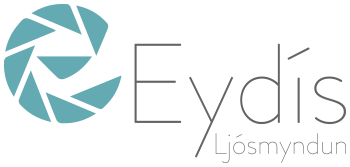Nature lays her commands on every animal, and the brute obeys her voice
It is not, therefore, so much the understanding that constitutes the specific difference between the man and the brute, as the human quality of free-agency
I see nothing in any animal but an ingenious machine, to which nature hath given senses to wind itself up, and to guard itself, to a certain degree, against anything that might tend to disorder or destroy it. I perceive exactly the same things in the human machine, with this difference, that in the operations of the brute, nature is the sole agent, whereas man has some share in his own operations, in his character as a free agent. The one chooses and refuses by instinct, the other from an act of free-will: hence the brute cannot deviate from the rule prescribed to it, even when it would be advantageous for it to do so; and, on the contrary, man frequently deviates from such rules to his own prejudice. Thus a pigeon would be starved to death by the side of a dish of the choicest meats, and a cat on a heap of fruit or grain; though it is certain that either might find nourishment in the foods which it thus rejects with disdain, did it think of trying them.
Hence it is that dissolute men run into excesses which bring on fevers and death; because the mind depraves the senses, and the will continues to speak when nature is silent
Every animal has ideas, since it has senses; it even combines those ideas in a certain degree; and it is only in degree that man differs, in this respect, from the brute. Some philosophers have even maintained that there is a greater difference between one man and another than between some men and some beasts. Man receives the same impulsion, but at the same time knows himself at liberty to acquiesce or resist: and it is particularly in his consciousness of this liberty that the spirituality of his soul is displayed. For physics may explain, in some measure, the mechanism of the senses and the formation of ideas; but in the power of willing or rather of choosing, and in the feeling of this power, nothing is to be found but acts which are purely spiritual and wholly inexplicable by the laws of mechanism.
However, even if the difficulties attending all these questions should still leave room for difference in this respect between men and brutes, there is another very specific quality which distinguishes them, and which will admit of no dispute. This is the faculty of self-improvement, which, by the help of circumstances, gradually develops all the rest of our faculties, and is inherent in the species as in the individual: whereas a brute is, at the end of a few months, all he will ever be during his whole life, and his species, at the end of a thousand years, exactly what it was the first year of that thousand. Why is cash loan services Wyoming man alone liable to grow into a dotard? Is it not because he returns, in this, to his primitive state; and that, while the brute, which has acquired nothing and has therefore nothing to lose, still retains the force of instinct, man, who loses, by age or accident, all that his perfectibility had enabled him to gain, falls by this means lower than the brutes themselves? It would be melancholy, were we forced to admit that this distinctive and almost unlimited faculty is the source of all human misfortunes; that it is this which, in time, draws man out of his original state, in which he would have spent his days insensibly in peace and innocence; that it is this faculty, which, successively producing in different ages his discoveries and his errors, his vices and his virtues, makes him at length a tyrant both over himself and over nature. It would be shocking to be obliged to regard as a benefactor the man who first suggested to the Oroonoko Indians the use of the boards they apply to the temples of their children, which secure to them some part at least of their imbecility and original happiness.
